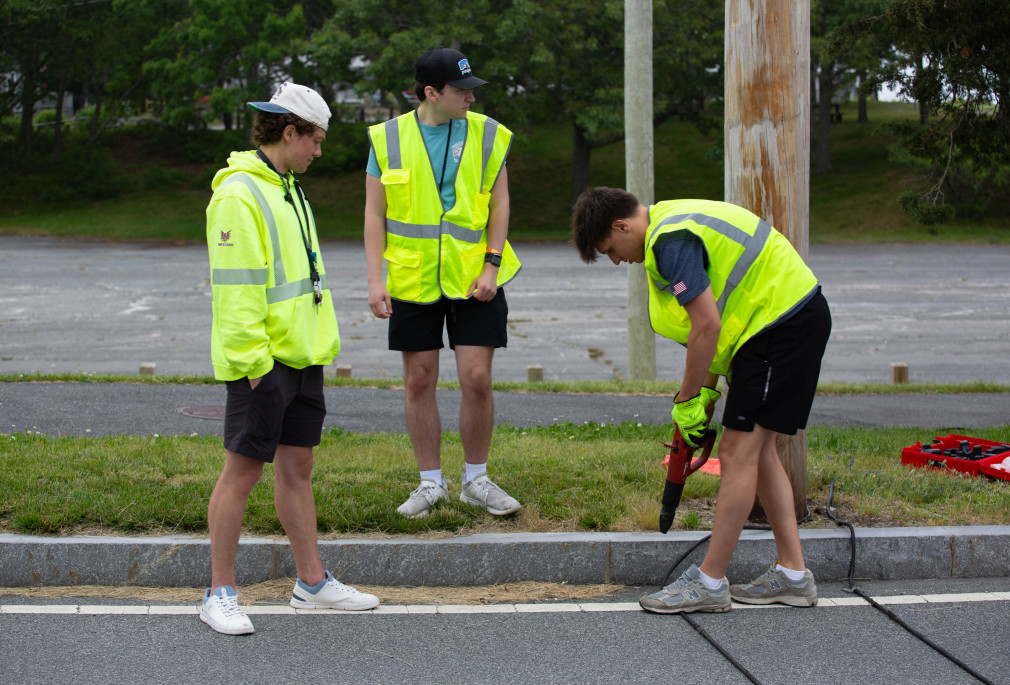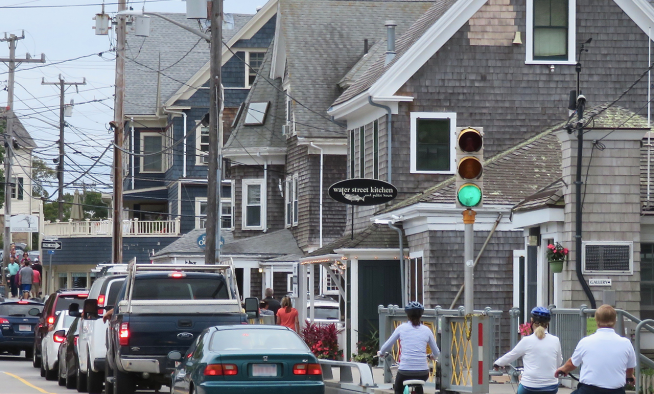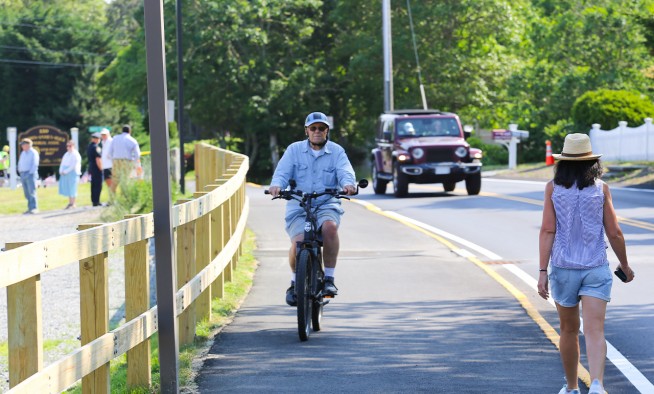Summer traffic technicians provide critical data collection

Pictured: Traffic technicians laying tubes along Ocean Ave near Keyes Beach in Hyannis. The tubes, in place from June 9 through June 12, counted an average of 2,288 vehicles per day.
On a recent foggy morning in Hyannis, a trio of college students dressed in high-visibility gear methodically installed traffic counting tubes across Ocean Avenue. One technician set up bright orange cones to signal drivers to slow down, while another brought equipment to the roadside: rubber tubing, industrial tape, and a compact data collection box. Working efficiently, the team stretched the tubes across the pavement, securing them in place and double-checking each connection.
These unassuming tubes play a vital role in regional transportation planning. As vehicles pass over, the resulting air displacement inside the tubes is measured, each puff indicating a vehicle’s presence. With two tubes in place, the system can also determine the vehicle's speed and direction of travel.
This fieldwork is carried out by the Cape Cod Commission’s seasonal traffic technicians, interns who spend the summer months gathering data that supports local planning efforts. Most are engineering or data science students, drawn to the opportunity for hands-on experience with real-world impact.
Eric Ierardi, a rising senior at the University of New Hampshire studying civil engineering and sustainability, is back for a second summer with the Commission. “I wanted to come back because I liked working on the Cape and knowing that the data we collect is being used in real projects,” he said. This year, Eric is also mentoring newer team members, building leadership skills as he explores a future in transportation engineering.
Technicians’ work this year is supporting implementation of the recently completed Vision Zero Action Plan, which outlines a strategy to eliminate fatal crashes on Cape Cod’s roads. Traffic technicians are helping implement the plan by collecting data at high-risk intersections, such as Depot Street and Old Chatham Road in Harwich, a location that has seen two fatal crashes in recent years. Their data collection will directly inform future safety improvements.
For Will Arsenault, a rising senior at Penn State majoring in data science, the internship is an opportunity to apply classroom learning to a real-world setting. “This is a unique opportunity to apply classroom knowledge in a hands-on environment and contribute to something that impacts local communities,” he said. A competitive ice hockey player, Will brings discipline and teamwork to the field, especially during complex setup procedures.
The Commission is also responding to town-level requests for data at intersections lacking current information but known to have issues. One such location is the intersection of Main Street and Holbrook Road in Wellfleet, where upcoming improvement plans prompted the town to ask for data collection support.
Paul Rideout, a rising senior at the College of Charleston majoring in finance, views this internship as a chance to sharpen his analytical skills through real-world data collection. “I get to drive around Cape Cod, seeing every town and hopefully making it a better place by the end of the summer,” he said. Paul hopes to carry his experience with data analysis tools and fieldwork into a future career in finance.
Beyond vehicle counts, technicians also assess pavement conditions. Using a mobile app, they record roadway features such as cracks, potholes, and other surface hazards—another critical input for maintaining safe, reliable transportation networks.
Whether assessing pavement conditions or collecting traffic data, the interns’ work is helping shape future transportation decisions across the region while giving future engineers a head start out in the field.
Related Posts




